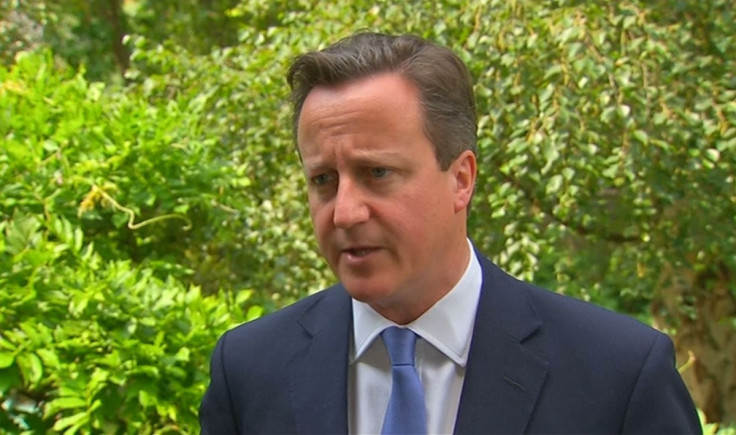Cameron Pressing EU to Move Further and Faster on Russia Sanctions

David Cameron is pressing EU leaders to go further and faster in their moves to punish President Putin and his "cronies and oligarchs" over the MH17 disaster.
The prime minister wants foreign ministers to agree a tough list of sanctions against "entities and individuals" when they meet tomorrow, including freezing assets and imposing travel bans.
But he is also pressing for so-called Tier 3 measures, which include economic and trade sanctions, to be considered with detailed proposals prepared in the event Moscow fails to cooperate.
He told MPs in the Commons that French Prresident Francois Hollande and German Chancellor Angela Merkel agreed with the need to toughen sanctions and that Europe did not need lessons about "the dangers of turning a blind eye to big countries bullying smaller ones".
Cameron spoke to President Putin on Sunday evening and, in what was described as "frank" remarks, told the Russian president the delay in allowing experts access to the crash site was "completely unacceptable and indefensible".
I told president Putin the world today is watching Russia, it is watching Putin and everybody wants to know he will do everything in his power to open up that site.
"I told president Putin the world today is watching Russia, it is watching Putin and everybody wants to know he will do everything in his power to open up that site," he said.
But he said he also wanted to see a de-escalation of the conflict in the regions including: "no more weapons crossing border, no more troops crossing border and no more support for the separatists".
There has been previous reluctance by some EU states who, unlike the UK, rely on Russian energy supplies, to ramp up sanctions for fear of retaliation. But Cameron is confident the mood has changed as a result of the disaster.
He believes other EU states, notably France and Germany, are ready to go further than the existing limited sanctions and hit Putin's "cronies and oligarchs" with financial and economic measures.
"This is a defining moment for Russia," he said. "If president Putin doesn't change approach now, then we must fundamentally change approach to him."
Earlier, his spokesman said the prime minister and other leaders accepted there would be a cost to action.
"There may be costs to the UK and others. But we should also look at the costs of not taking action - departing from a rule-based system where territorial integrity is not respected and where some of the terrible actions we have seen can take place," he said.
The prime minister was updating MPs in the Commons on the latest developments and was chairing another meeting of the government's National Security Council.
Speaking earlier, chancellor George Osborne had repeated the message, telling the BBC: "This is about living in a world where international borders are respected, where commercial airlines are not shot down, and it's absolutely in Britain's national economic interest that that is the case.
"And when it comes to things like sanctions, of course they can have an impact on your own economy. But the economic impact of not acting in a situation like this could be very much worse," he said.
© Copyright IBTimes 2025. All rights reserved.






















